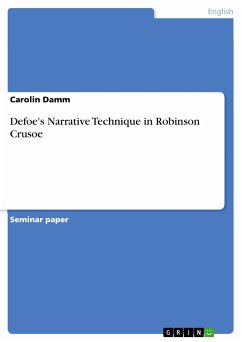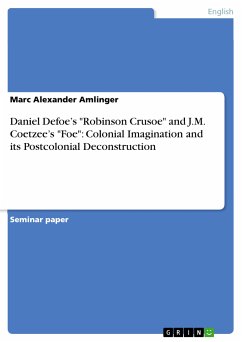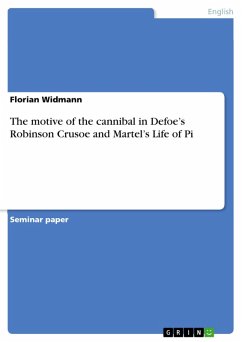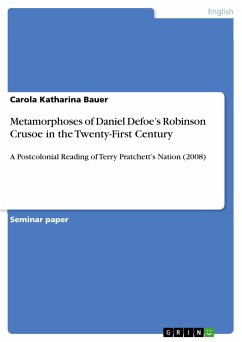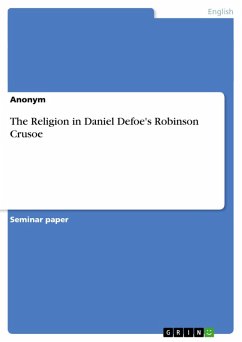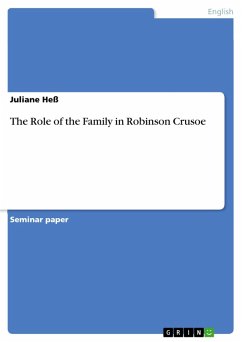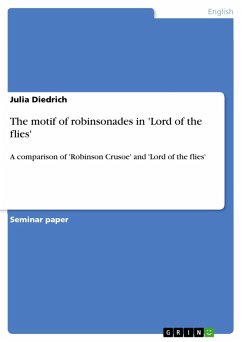Seminar paper from the year 2004 in the subject English Language and Literature Studies - Literature, grade: 1,3, RWTH Aachen University, language: English, abstract: With the publication of Robinson Crusoe in 1719 the novel became established as a significant literary genre. In this connection Daniel Defoe set new standards for a long period. With his The Life and Strange Surprising Adventures of Robinson Crusoe he laid the foundations of the contemporary Robinsonade. "With its common hero, pseudo-authentic style, and focus on ideological problems of materialism and individualism, it has been widely seen as the first modern realist novel" 1, the critic David Fausett writes. But in the history of interpretation there are dissensions about Defoe's role in the development of the novel. His style although it revolutionised the English novel, first was a topic for extensive discussions. From Maximillian E. Novak we get to know that "many of Defoe`s critics have regarded his fiction as a kind of accident arising from his desperate need to support his family and to keep off his creditors."2 In the Rise of the Novel Ian Watt goes so far as to say that Defoe "is perhaps a unique example of a great writer who was very little interested in literature, and says nothing of interest about it as literature."3 In contrast Hammond underlines the novel's "lasting significance" that "surely lies in its consummate blending of divergent literary traditions and its fruitfulness as a source of myth."4 Furthermore he concludes that "a story that has achieved the status of a fable must possess considerably literary and imaginative qualities and respond to some deep need in the human psyche."5 Because there must be something in Defoe's style and narrative technique that justifies the novel's position in literature some critics have already tried to find an explanation for Defoe's role in the rise of the novel. [...] 1 Fausett, David. 1994. The Strange Surprizing Sources of 'Robinson Crusoe'. Amsterdam: Rodopi, p. 25. 2 Novak, Maximillian E. "Defoe`s Theory of Fiction." In: Heidenreich, Regina und Helmut, eds. 1982. Daniel Defoe: Schriften zum Erzählwerk. (Wege der Forschung. Vol. 339). Darmstadt: Wissenschaftliche Buchgesellschaft, p. 182. 3 Watt, Ian. 1957. The Rise of the Novel. Berkeley, p. 70. 4 Hammond, John R. 1993. A Defoe Companion. MD: Barnes & Noble, p. 67. 5 ibid., p. 67.
Dieser Download kann aus rechtlichen Gründen nur mit Rechnungsadresse in A, B, BG, CY, CZ, D, DK, EW, E, FIN, F, GR, HR, H, IRL, I, LT, L, LR, M, NL, PL, P, R, S, SLO, SK ausgeliefert werden.

